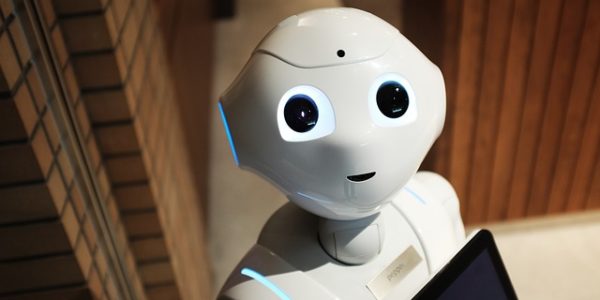You know the advantages of robots when it comes to manufacturing. They save money, eliminate waste, increase profits, maximize production, and they make the workplace safer. And that’s just scraping the surface. It’s difficult to imagine what manufacturing would be like, or the world for that matter, without automation.
We’ve turned to robots to solve a number of the world’s problems, and they’ve delivered time and time again. But can robots provide the answer for loneliness?
Robots aren’t friendly
We rely on automation for production and efficiency. Machines are cold, deliberate, and relentless. They execute specific functions to achieve a desired result. These attributes are great for industrial robots working on an assembly line or packaging facility, but they’re not qualities you typically look for in a friend.
The attributes that make a good friend – such as compassion, care, empathy, loyalty – maybe even the ability to smile or share in a joke – aren’t in the robot wheelhouse. At least not in the sense that we recognize these qualities in humans.
Artificial friendship
While robots can’t recognize or understand human emotions in the same way that people can, we can create the illusion that robots are caring or friendly.
Take caregiver robots, for example. Caring for the elderly is a job that many would say requires a human. Those key attributes that you look for in a friend – compassion, care, etc. – are also crucial in the care giving profession.
However, some parts of the world – most famously Japan – are experimenting with robot caregivers for the elderly. An aging population and dwindling workforce forced Japan to get creative, and they found the answer in automation.
Many of the robots assist in moving patients. Some of these robots – such as Pepper – can carry out scripted conversations. A robot doesn’t really care about your day or want to know how you are doing, but hearing a robot ask these questions can potentially make people feel better and less lonely.
The Bureau of Labor Statistics predicts that the U.S. will need more than one million additional professional caregivers by 2026. Although, the Pew Research Center found that almost 60 percent of American adults don’t like the idea of robot caregivers, they might be the next best thing.
As artificial intelligence improves we can expect robots to carry out more natural and authentic sounding conversations. Even if a robot doesn’t really care, a robot that appears caring could help people with loneliness.
